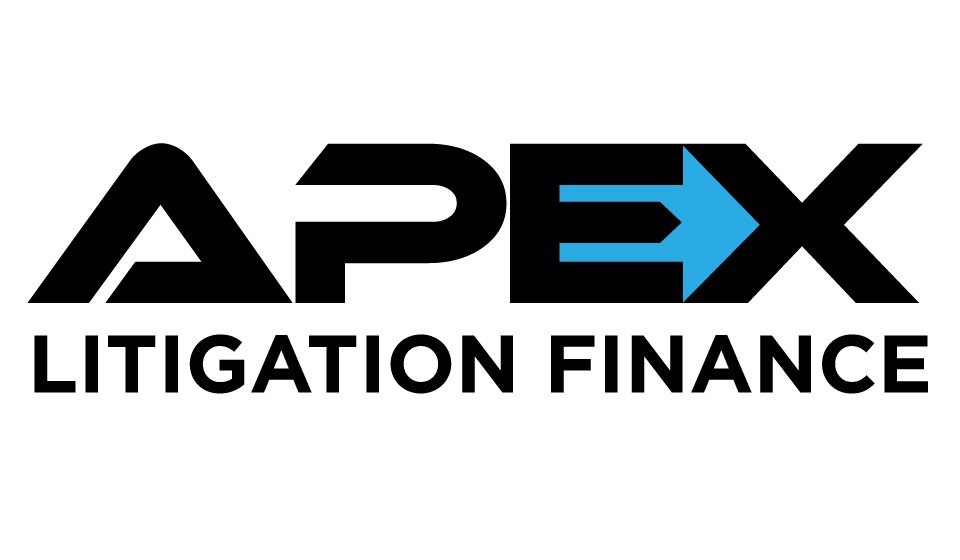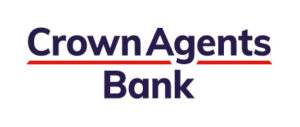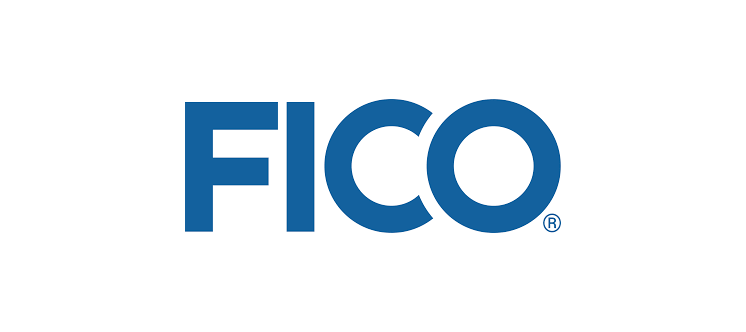Published

Steve Wilson
Chief Product Officer at Contrast Security
This week, Contrast Security announced the release of ‘Contrast Scan’, the DevSecOps platform revolutionising static application security testing (SAST) with pipeline-n see more
- 05:00 am

Scienaptic, a leading AI-powered credit decision platform provider, announced Pelican State Credit Union has chosen its platform to enable the financial institution to make faster credit decisions and support the financial goals of its members.
Originally chartered to serve Louisiana's charity hospitals, mental health centers and state office personnel, Pelican State Credit Union has become the largest state-chartered credit union in Louisiana, growing to more than 50,000 members nationwide. For over 60 years, the credit union has been providing innovative products and services with a continued, dedicated focus on member loyalty.
“At Pelican, we understand that our members are more than just their FICO credit score and we are committed to meeting their financial needs,” said Paige Corcoran, Senior Vice President of Lending at Pelican State Credit Union. “Scienaptic's AI-powered credit decisioning platform will help enhance our view of our members’ total financial picture and further support our mission to improve their lives through safe, competitive products and educational services.”
“We are very pleased to help Pelican State Credit Union expand its credit availability for its current and potential members,” said Pankaj Jain, President of Scienaptic. “Scienaptic’s AI-powered credit decisioning platform can increase the reach and speed of credit approvals, strengthening member relationships and supporting their financial needs.”
Related News
- 05:00 am

Apex Litigation Finance are delighted to announce the appointment of two new Advisors to its team. Both bring with them an impressive track record in employing artificial intelligence technology in litigation funding.
The appointment of Jan Buza and Jozef Maruscak provides key support for Apex’s growth strategy, strengthening resources to meet a significant increase in case numbers.
Jan Buza led Business Development at Exponea, a data company that raised over £30m and was later acquired by Bloomreach, the leader in Commerce Experience. He then worked on employing AI (artificial intelligence) and predictive analytics in litigation at CourtQuant and was part of Deloitte’s Legal Tech accelerator program. Most recently, he co-founded and heads product development at Trama, a Legal Tech company that is building an AI-powered trademark registration service.
Jan says: “It is great to be on board with Apex. I have watched them over the past eighteen months or so as they established themselves as a leading provider of litigation funding solutions. Their innovative use of AI in this field mirrors my own background and I look forward to making a valuable contribution to their capability.”
Jozef Maruscak co-founded various Legal Tech projects while studying law at Cambridge University. He then continued as the CEO of CourtQuant, a start-up specialising in predicting key attributes of legal cases using AI and predictive analytics. He is now a partner and Head of Business Development in Sudolabs, a company building software products for Silicon Valley start-ups and Y-Combinator founders.
Jozef says: “The legal market is increasingly driven by AI, and I wanted to bring my experience in this area to a company that fully embraces its potential, and that’s definitely true of the senior team at Apex. There is a bright future for AI as a tool to support better decisions by litigation funders and I am confident that Apex is in the best place to disrupt the market.”
Commenting on these appointments, Apex CEO Maurice Power expresses confidence in the company’s strengthened resources: “We recently announced that we were looking to expand our team with talented individuals and Jan and Jozef exceed our expectations."
“They both have a CV and skillset that fits perfectly with our continuing journey of employing AI in litigation finance to drive up efficiency and performance for our clients and investors. Jan and Jozef will both combine their contribution at Apex with exciting commitments in complementary roles.”
Related News
- 03:00 am

nSure.ai, a predictive AI fraud protection company, focuses on the unique needs of digital goods retailers, announced a successful seed fundraising round of $6.8 million, led by DisruptiveAI, Phoenix Insurance, Kamet – an AXA backed venture builder, Moneta Seeds and private investors.
These funds will go towards further developing nSure.ai’s predictive AI and machine learning algorithms that have reimagined digital fraud detection, reducing decline rates by 90% from an industry standard of declining 20% to only 2%.
Unlike physical goods, digital goods are instantly delivered and deposited. These include gift cards, top up & prepaid debit cards, software and game keys, digital wallet transfers, international money transfers, tickets, and more. Sellers of physical goods have warehouse processing times to double-check charges and can withhold a shipment if needed. Digital sellers lack this buffer, so even if fraud is detected minutes later, the assailant is untraceable, leaving sellers to absorb hefty chargeback fees.
Before founding the company in 2019, the founders of nSure.ai, Alex Zeltcer and Ziv Isaiah, experienced first-hand the unique challenges faced by retailers of digital assets. During the first week of operating their online gift card business, 40% of sales were fraudulent, resulting in chargebacks. They turned to leading fraud detection solutions from the physical goods space but soon realized that they did not meet their needs. This led them to develop a platform that focuses specifically on supporting the under-served digital goods sector.
Sellers of physical goods have access to incumbent anti-fraud technologies that prevent fraudulent charges and come with chargeback guarantees. Now, nSure.ai is bringing this technological and chargeback guarantee revolution to the digital goods sector, freeing digital goods retailers of worry and opening greater opportunities to scale.
“We believe that fraud, especially in the booming field of digital goods, can only be fought with top-of-the-line AI technologies,” said Gadi Tirosh, Venture Partner at Disruptive AI. “nSure.ai has both the technology and industry understanding to win this market.”
Today’s industry benchmark declines approximately 15%-20% of transactions. With accurate proven AI and a deep industry understanding, nSure.ai’s 98% approval rate reflects a more accurate fraud-detection strategy, allowing retailers to recapture nearly $100 billion a year in revenue lost by declining legitimate customers, according to CEO Alex Zeltcer.
“We are thrilled that our investors have placed their trust in our leadership and confidence in nSure.ai,” said Alex Zeltcer, co-founder and CEO. “This investment enables us to register thousands of new merchants, who can feel confident selling higher-risk digital goods, without accepting fraud as a part of business.”
nSure.ai solution currently monitors and manages millions of transactions every month, and has approved close to $1B in volume since going live.
Related News

Leon Muis
Chief Business Officer at Yolt Technology Services (YTS)
Social media sites have evolved significantly in recent years, but the most recent and one of the most transformative changes has been the rise in social commerce, some see more
- 01:00 am

Demonstrating its commitment to achieving excellent quality standards and processes, Fortis Data Protection & Compliance (DPC), which helps businesses ensure they are GDPR compliant has been awarded the IASME Gold Standard certificate and Quality Principles accreditation.
An alternative to the International Standard ISO9001, Quality Principles recognises businesses that can show a high level of customer services and customer interactions are delivered through an organisation.
The IASME Governance standard allows small companies in a supply chain to demonstrate their level of cyber security and the measures in place to properly protect their customers' information.
The standard was developed over several years during a government funded project to create a cyber security standard as an alternative to the international standard, ISO27001.
Howard Freeman, MD, Fortis DPC comments “This is an excellent achievement for the business which clearly exhibits our commitment to quality processes and standards. As a business we are operating at the same touchstones that we would be delivering for our clients, offering businesses a safe pair of hands as they tackle the issues of information security”.
IASME work alongside a network of over 250 Certification Bodies across the UK and Crown Dependencies to help certify organisations of all sizes in both cyber security and counter fraud. IASME is committed to helping businesses improve their cyber security, risk management and good governance through an effective and accessible range of certifications.
Howard Freeman continues, “Most businesses can apply for certification direct, however, depending on the size and complexity of an organisation, it would need to factor in costs of preparing and aligning internal practices with the schemes five controls, which requires time and expertise to embed within a firm’s own systems and processes. This is something many organisations overlook when implementing Cyber Essentials, which is why we advise hiring a consultant. We’ve gone through the process and have the expertise and specialist knowledge to help businesses keep their customers data safe. Organisations that don’t, risk failing their certification project and would have to go through the process again potentially with the cost of a new application”.
Related News
- 04:00 am

Elevator Lab, powered by RBI, organized its annual Demo Day on the 10th of June 2021. Unlike the previous events, the Demo Day took place in a digital format due to the COVID-19 crisis.
The event featured the launch of the new digital format of the CEE Fintech Atlas, a website providing information and an overview of the CEE fintech startup scene (cee-fintechatlas.com). The Atlas also features macro-economic data for 19 CEE countries. From the beginning, the goal of the CEE Fintech Atlas was to share RBI's knowledge and expertise on fintech startups as well as technology and digitalization topics with a broader audience. It aims to create more connectivity and synergies between the banking industry and the fintech startup community, while creating an increased awareness of the emerging, innovative, and interesting fintech startups as well as technology solutions. The website will be a constantly updated source of information.
The second part of the event included a showcase of the achievements and efforts of the fintechs and their mentors that participated in the Elevator Lab Partnership Program Tracks in 2020, as well as the Winner of the Regional Elevator Lab Challenge in Bosnia and Herzegovina, Croatia and Serbia 2020. The finalists that presented their video pitches were:
iFactor - Advanced Analytics and Loyalty Solutions Elevator Lab Program track finalist. Founded in Romania in 2016, iFactor is the first fintech offering an alternative SME lending hybrid marketplace that brings together liquidity-seeking SMEs, banks, and private investors looking for short-term, high yield investments.
Synerise - Advanced Analytics and Loyalty Solutions Elevator Lab Program track finalist. A Polish fintech founded in 2013, working in the field of AI, Big Data, and Advanced Analytics. From its founding to this day, Synerise has attracted many
global corporate customers, and is currently working with some of the biggest retail and financial services companies.
Finlync - Value added Services Elevator Lab Program track finalist. Founded in 2015, FinLync strives to make corporate finance faster and more secure as well as more streamlined and more intuitive. Therefore, it has developed native treasury apps which give corporate treasurers complete and direct control of their data. FinLync's largest clients include Fortune 2000 and Fortune 500 companies.
Zentity - Bank as a Platform Elevator Lab Program track finalist. A fintech headquartered in the Czech Republic, with offices in Slovakia, Hungary, and the USA, focused on providing digital channels. In over ten years of experience in digital technologies, Zentity’s team delivered more than 110 solutions based on their products to companies working across Europe, North America, Asia, and Africa.
IPification - Winner of the Regional Elevator Lab Challenge Raiffeisen Bank Bosnia and Herzegovina, Croatia, and Serbia. IPification offers innovative solutions for mobile client authentication, without credentials, tokens, SMS OTPs, header enrichment, or face scans. Their solution currently has around 550 million mobile users worldwide.
Following the pitches, the audience voted on the best pitch in a poll. The chosen winner of the Best Pitch Award was Zentity.
After the pitches ended and the winner was announced, the participants had the opportunity to “walk around” virtually at the fintech booths, which were hosted by fintech representatives, and network.
Related News
- 06:00 am

Voyager Digital’s Q2 2021 Retail Investor Sentiment Survey indicates that despite the recent sell-off in Bitcoin and the wider crypto markets, investors are even more bullish than before, with a greater proportion of users looking to increase their crypto holdings than the previous survey.
The results are based on a sample set of more than 1.6 million verified users that make up Voyager’s fast-growing crypto platform and suggest they still believe the crypto bull market is set to pick up steam. There remains a significant number of investors who believe that Bitcoin’s price will exceed $71,000 by the end of Q3 2021, whilst the largest group sees Bitcoin ending up between $56,000-$70,000.
Key survey findings:
- 81% say that they are more confident in the future of cryptocurrency following the recent sell-off.
- 87% of investors plan to increase their Bitcoin or crypto holdings over the next quarter, higher than in the previous survey (80%).
- Bullish sentiment for the price of Bitcoin over the next 3 months stands at an average of 7 out of 10 (1 being the most bearish and 10 being the most bullish).
- 39% predict the price of Bitcoin to be between $56,000-$70,000 with 28% expecting the price to be between $41,000-$55,000, by the end of Q3 2021.
- There is still a significant proportion of respondents, 18%, that believe Bitcoin will reach above $71,000, down slightly from the previous survey (20%).
- More than 9 out of 10 respondents believe the SEC will approve a Bitcoin ETF.
- Of the Altcoins, investors are most bullish on Cardano above any others:
- Cardano (ADA): 55%
- Dogecoin (DOGE): 11%
- Chainlink (LINK): 6%
- Polkadot (DOT): 6%
Steve Ehrlich, CEO of Voyager had the following comments to make from the findings:
“It’s encouraging that investors remain bullish following the recent market correction as we continue to see some interesting trends in our user sentiment surveys. The fact that the vast majority of our large sample size of investors are more confident in the future of cryptocurrency, shows how people see May’s volatility in many crypto-assets as a buying opportunity. Our findings show that 87% of investors are looking to increase their crypto holdings in the next quarter, a much higher percentage compared to the last survey we conducted in April.”
Related News
- 04:00 am

Crown Agents Bank has today announced two significant hires to its Executive Committee. David Mountain joins as Executive Vice President (EVP) and, in a newly created role, Head of Fintech. The leadership team is further strengthened by Joe Hurley joining as Chief Commercial Officer (CCO). The appointments come following a transformational 18-month period for the bank, with the launch of new digital financial services and a continued 65% year on year growth in the business.
David Mountain will be responsible for M&A and strategy, as well as the use of strategic technology. David brings over two decades of experience to the role, having been a successful entrepreneur building Accucard, an online credit card business that was sold to Lloyds TSB and, most recently, as a board member of US-based fintech ProducePay, which was voted the top start-up in Los Angeles in 2020.
Joe Hurley joins Crown Agents Bank as CCO, building the bank's strategic client coverage and business development. Joe was previously Senior Vice President and member of the Management Committee at Discover Financial Services, working on innovative M&As such as the acquisition of the Pulse Debit business, Diners Club International and investment in fintech companies, including Marqeta. Joe also spearheaded putting together Discover Financial's Net to Net partnerships, which included ELO, RuPay, JCB and UnionPay.
CEO of Crown Agents Bank, Bhairav Trivedi, comments on the new hires: "My vision for the bank very much involves being a first-mover on developing and offering our clients cutting edge technologies that give them an advantage over their competitors. David's and Joe's expertise in the finance sector and their impressive network, built up over years of being at the forefront of the fintech scene, place them in the perfect roles for driving forward Crown Agents Bank's technology-first strategy. Particularly in emerging and frontier markets, digital services are a priority, and through David's and Joe's leadership, we will continue to achieve - and accelerate - our growth in delivering tech-driven, market-relevant solutions to these often-underserved regions."
On his role at Crown Agents Bank, David Mountain, EVP and Head of Fintech, comments: "Crown Agents Bank has a phenomenal global network in markets where it is traditionally difficult to build strong relationships. This, coupled with the bank's technology capabilities, places it in a unique position to best serve these hard-to-reach markets. My job now is to continue to build on these solid foundations. I'm excited by the innovation in financial services that have emerged over the last 12-18 months and look forward to working with the Crown Agents Bank product teams to develop and add even more new services to our portfolio."
Joe Hurley, EVP and Chief Commercial Officer, added, "I am driven by being part of the dynamic growth at Crown Agents Bank. It's hugely exciting to be joining at a time when Crown Agents Bank is looking at how new innovations can be applied to deliver traditional banking services more efficiently, as well as expand its technology services to offer completely new services that meet the needs of those who have struggled to access financial services. Our team will be laser-focused, with a clear product roadmap to target the best-of-breed partners, and I look forward to leading the charge on continuing to drive this forward.”
As well as the appointment of David Mountain and Joe Hurley, Steven Marshall moves from Chief Commercial Officer to undertake a newly created strategic role of Chief Product and Network Officer. Steven and his team will be focused on creating and building new products to support market growth as part of Crown Agents Bank's global expansion plans.
Related News
- 07:00 am

Highlights
- Second consecutive month increase in credit card spend – 12 percent – and the largest monthly increase for over two years
- Percentage of payments to balance increased for the first time since December, by 3 percent
- The percentage of accounts exceeding their limit increased for the first time since December 2019
- Cash usage increases for the first time in seven months – albeit only by 2 percent
Global analytics software provider FICO today released its analysis of UK card trends for April 2021, which shows the impact of the opening up of hospitality and retail on April 12. The figures include a 12 percent rise in card spend and more customers exceeding their card limit. Missed payments were still below historical trends, probably due to increased savings and government support, which continues to blur the picture of card users struggling with debt issues, making it more difficult for lenders to manage.
Whilst year-on-year comparisons must be taken in context as April 2020 was the first full lockdown month, April 2021 is the first month showing partial non-lockdown data since December, with some signs of stress relating to spend above limit and cash usage as well as higher average balances on accounts missing payments. With further spend expected in the coming months, the financial sector may start to get a better idea of the ability of card users to maintain their debt.
Spend on UK cards continued to increase, along with the percentage of payments
The average spend on UK credit cards increased for the second consecutive month, by £65 to £625 in April 2021. This is the largest monthly increase in spend for over two years. As April 2020 was a lockdown month, it is not surprising to see sales are 22 percent higher year on year. April 2021 saw a rise of 9 percent in retail sales, with clothes purchases up 70 percent over March 2021.
The percentage of payments to balance increased for the first time since December, by 3 percent. This time last year a drop in payments was reported, as the initial impact of the pandemic hit consumers before the government financial support was introduced.
Payments to balance are now 6 percent higher than a year ago. Average card balances, although increasing month on month, are 10 percent lower than a year ago.
Source: FICO
April 2021 saw a shift in the way consumers pay their credit card debt, with a move to paying the minimum or full balance. This highlights the difference the pandemic has had on cardholders, with the gap widening between those who have increased their savings and can afford to pay off their full balance versus those who, perhaps even with support, can only afford to pay the minimum. Issuers could open communication with those customers whose payments to balance are decreasing, especially if they are still spending, as this could be a clear indication of a deterioration in financial stability.
In the four months to April 2020, 27 percent fewer accounts paid the minimum amount as the majority shifted to paying less. In the same period this year, the proportion paying the minimum has increased by 20 percent, which will increase the volumes qualifying for persistent debt treatment.
With further sectors opening in May and foreign travel allowed to a small number of countries, spend is expected to continue to rise. The uncertainty remains around repayment, as predictions are that a record number of UK businesses could fail, with the small business sector impacted the most, which could impact unemployment rates.
Source: FICO
Missed payment rates remain low
April 2021 shows month-on-month improvements in the percentage of accounts missing payments and their associated percent of balance to total balance. Until the furlough support is removed, this trend may continue, as the combination of these payments and the extra savings influence consumer behaviour. Comparing results to this time last year also looks favourable, but this needs to be put into context as April 2020 saw the peak in missed payments, as it preceded government support options.
Average balances on accounts missing one payment increased £26 month on month, although it is 13 percent lower than a year ago. For accounts missing two payments, the average balances are £126 or 5 percent higher than April 2020. Average balances on accounts with three missed payments are £272 higher (10 percent) and four missed payments plus are £315 higher (11 percent), reaching another over two-year high.
Card limits remain steady, but the percentage of accounts exceeding their limit increases for the first time since December 2019
Average card limits increased £4 in April, influenced by accounts opened one or more years. Limits are £37 lower than April 2020. Limits on accounts opened less than a year have fallen £224 since December.
The highest proportion of accounts — 29 percent — remain in the limit range of £5,001 to £10,000, with an average balance of £1,148, the first monthly increase since December. 10 percent of credit cards have a limit greater than £10,000 and their average balance is just £2,201, again experiencing the first increase since December.
The percentage of accounts going over their limit had been decreasing since January 2020, with the pandemic accelerating the downwards trend. However, April 2021 has seen the first increase, in conjunction with the easing of lockdown rules, since December 2019. The fact that some consumers are finding the need to spend above their agreed limit, and incur the associated fees and thereby increasing their balance further, is a concern.
Due to the lower volumes in collections as fewer accounts are missing payments, issuers have an opportunity to address the higher risk accounts in this category, to help prevent them moving to a missed payment state. If these consumers are also shifting to paying the minimum amount due, this will also boost volumes qualifying for persistent debt actions.
Cash usage increases for first time since September 2020
The percentage of consumers using cash on their credit cards increased for the first time since September 2020, albeit only marginally. The opening of some sectors has influenced this, although it remains 52 percent lower year-on-year. However, cash as a percentage of total spend decreased for the first time since December, which implies that more consumers are using cash but in lower amounts. This is another segment of customers that issuers could concentrate on, as this could be an indicator of financial problems, especially if combined with exceeding the limit.
May data will show a full month of lockdown easing, with even further spending options becoming available and impacting the trends. Issuers will need to be agile in their reaction to customers’ behaviour and will need to adapt their strategies, interaction and treatment accordingly, potentially at short notice, always ensuring that the customer experiences consistent treatment throughout.
These card performance figures are part of the data shared with subscribers of the FICO® Benchmark Reporting Service. The data sample comes from client reports generated by the FICO® TRIAD® Customer Manager solution in use by some 80 percent of UK card issuers. Issuers wishing to subscribe to this service can contact staceywest@fico.com. UK









